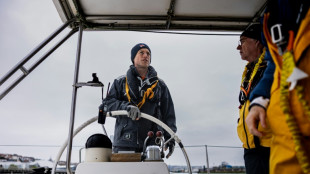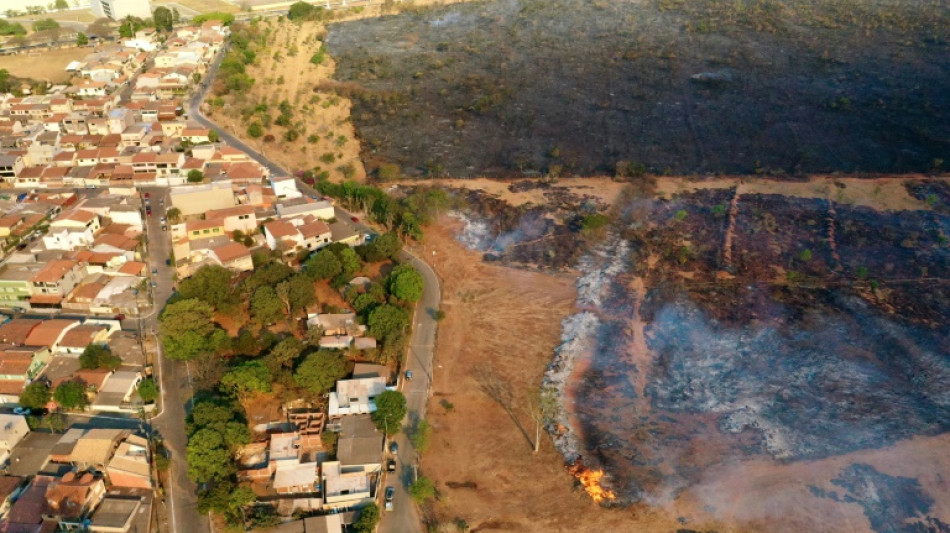
-
 SFWJ / Medcana Announces Strategic Expansion Into Australia With Acquisition of Cannabis Import and Distribution Licenses
SFWJ / Medcana Announces Strategic Expansion Into Australia With Acquisition of Cannabis Import and Distribution Licenses
-
First US 'refugee scientists' to arrive in France in weeks: university
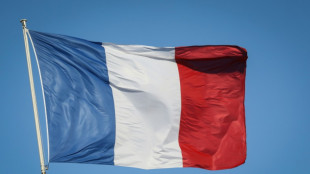
-
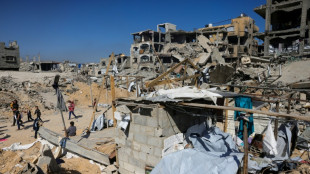 Members of UK Jewish group launch broadside on Gaza war
Members of UK Jewish group launch broadside on Gaza war
-
One million Haitian children face 'critical' food shortage: UN
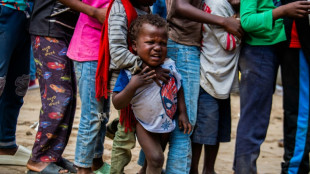
-
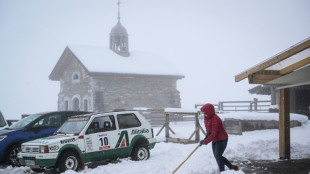 Spring snow storm wreaks deadly havoc in the Alps
Spring snow storm wreaks deadly havoc in the Alps
-
Man Utd buy time to make miserable season 'special', says Amorim

-
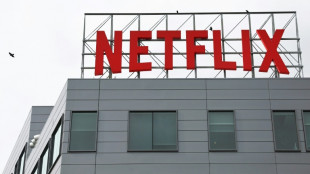 Netflix earnings top forecasts despite economic turmoil
Netflix earnings top forecasts despite economic turmoil
-
Thomas three clear at RBC Heritage after sizzling 61

-
 Man Utd beat Lyon in Europa League epic, Spurs and Athletic Bilbao reach semis
Man Utd beat Lyon in Europa League epic, Spurs and Athletic Bilbao reach semis
-
Frankfurt's Goetze sidelined with leg injury

-
 Spurs players 'never lost belief', says Postecoglou
Spurs players 'never lost belief', says Postecoglou
-
Man Utd stun Lyon in nine-goal Europa League classic to reach semis

-
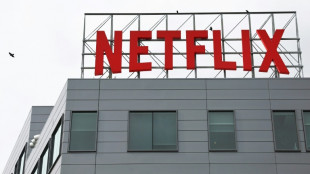 Netflix earnings in first quarter of 2025 top forecasts
Netflix earnings in first quarter of 2025 top forecasts
-
Trump says US 'talking' to China on tariffs

-
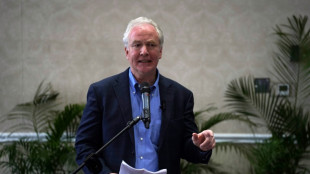 Salvadoran soldiers stop US senator near prison holding expelled migrant
Salvadoran soldiers stop US senator near prison holding expelled migrant
-
Solanke penalty sends Spurs to Europa League semis

-
 CAF crackdown after trouble in African club matches
CAF crackdown after trouble in African club matches
-
Trump talks up EU tariff deal as Italy's Meloni visits

-
 Trump insists he could fire independent Fed Chair Powell
Trump insists he could fire independent Fed Chair Powell
-
Google has illegal monopoly in ad tech, US judge rules

-
 Trump softens on Zelensky, says mineral deal coming 'soon'
Trump softens on Zelensky, says mineral deal coming 'soon'
-
Jacks helps Mumbai beat Hyderabad in IPL

-
 Countries must 'make the best' of new multipolar world: IMF chief
Countries must 'make the best' of new multipolar world: IMF chief
-
Heavy spring snow storm wreaks havoc in the Alps
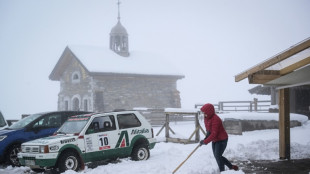
-
 US judge rules against Google in online ad tech antitrust case
US judge rules against Google in online ad tech antitrust case
-
Andreeva knocked out by Alexandrova in Stuttgart last 16

-
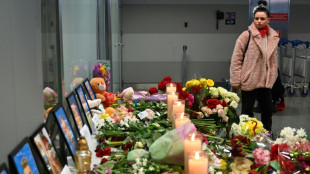 Iran challenges four countries in UN court over jet it downed in 2020
Iran challenges four countries in UN court over jet it downed in 2020
-
'Not at 50' - Alonso sets retirement limit

-
 Macron praises US-European-Ukraine talks as 'important occasion for convergence'
Macron praises US-European-Ukraine talks as 'important occasion for convergence'
-
Verstappen dismisses Red Bull exit fears

-
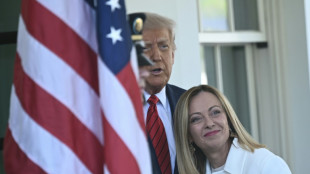 Italy's Meloni, Trump talk up EU trade deal hopes
Italy's Meloni, Trump talk up EU trade deal hopes
-
'Slow but steady' progress for Martin after Qatar MotoGP crash

-
 Pogacar-Van der Poel duel inspires Evenepoel comeback
Pogacar-Van der Poel duel inspires Evenepoel comeback
-
US judge rules Google monopolized online ad tech market

-
 Bearman back at 'special' debut-track Jeddah
Bearman back at 'special' debut-track Jeddah
-
Swiss watch exports to US soared ahead of Trump tariffs

-
 Alcaraz finds best to reach Barcelona Open quarters
Alcaraz finds best to reach Barcelona Open quarters
-
Where are all the aliens?: Fermi's Paradox explained

-
 France full-back Dulin to retire at end of season
France full-back Dulin to retire at end of season
-
World economy likely to avoid recession despite tariffs: IMF chief
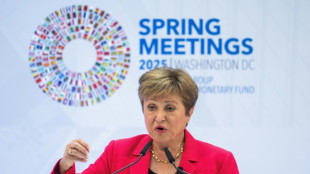
-
 57 killed in Sudan's Darfur as trapped civilians fear bloodbath
57 killed in Sudan's Darfur as trapped civilians fear bloodbath
-
Vietnam ups wind, solar targets as energy demand soars

-
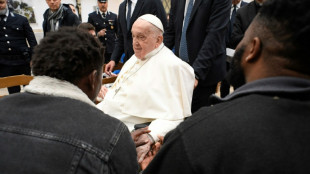 Pope says doing 'best he can' on jail visit before Easter
Pope says doing 'best he can' on jail visit before Easter
-
China's Xi meets Cambodian leader as part of regional diplomatic blitz
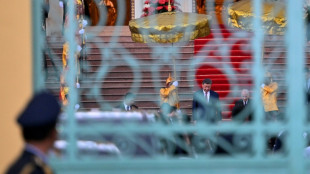
-
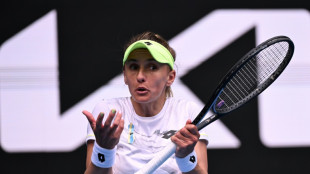 Ukrainian tennis player seeks legal justice over 'moral abuse'
Ukrainian tennis player seeks legal justice over 'moral abuse'
-
Italy's Meloni seeks EU tariff deal from Trump

-
 France's feminist icon Pelicot to sue Paris Match for privacy invasion
France's feminist icon Pelicot to sue Paris Match for privacy invasion
-
World economy should avoid recession despite tariffs, IMF chief says

-
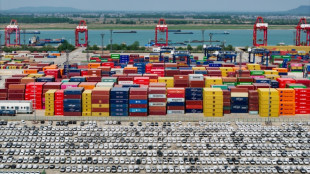 Stocks waver as ECB cuts rate, Trump slams Fed chief
Stocks waver as ECB cuts rate, Trump slams Fed chief
-
France, UK mull migrant swaps in bid to stem Channel crossings


Brazil's farmers fret over fires and drought
Sugarcane farmer Marcos Meloni is still haunted by his battle last month to fight the flames on his land, as the double-edged disaster of fires and drought hits Brazil's agricultural sector hard.
"The rearview mirror of the water tanker shriveled up" from the intense heat, recalled the farmer from Barrinha, at the heart of a major agricultural area 340 kilometers (211 miles) from Sao Paulo.
"I thought I was going to die there."
Brazil's worst drought in seven decades has fueled fires across the vast nation in recent weeks, ripping through the Amazon rainforest, leaving jaguars with burn injuries in the Pantanal wetlands, and choking major cities with smoke.
The country's vital agricultural sector is also reeling, with harvests of sugarcane, arabica coffee, oranges and soybeans -- of which Brazil is the world's main producer and exporter -- at risk.
And there is little hope of a quick turnaround, with less rain forecast in October than average.
In the country's main sugar-producing region in the state of Sao Paulo, some 230,000 hectares of the four million sugarcane plantations in the area, have been affected to varying degrees by the fires.
Half of the damaged plantations have yet to be harvested, according to the Brazilian Sugarcane Industry Union.
"Where the sugarcane is still standing, we expect the yield (in sugar) to drop by half," said Jose Guilherme Nogueira, CEO of the Organization of Sugarcane Producers' Associations of Brazil.
- 'The soil lacks water' -
Meloni had already finished his harvest but his land suffered significant damage.
"It burned where there were shoots, which were already struggling to come out because of the lack of water. Now we have to see where we will have to replant."
In southeastern Minas Gerais, home to 70 percent of Brazilian Arabica, coffee growers are also anxiously awaiting the rains needed to encourage their shrubs to flower and form the coffee berries that will be picked next year.
"The soil lacks water. It is the worst water deficit in 40 years," lamented Jose Marcos Magalhaes, president of Minasul, the second-largest coffee cooperative in the country.
By the end of the month, "we need rains of good intensity to hope to have a normal harvest" in 2025, he said.
Bad weather has already disrupted the 2023-2024 harvest, which is coming to an end.
In May, the state-run National Supply Company (Conab), a public body, anticipated an increase of 8.2 percent in Arabica production, but these forecasts "will probably be revised downwards", said Renato Ribeiro, from the Center for Advanced Studies in Applied Economics at the University of Sao Paulo.
- Agri industry must 'open its eyes' -
The drought is also squeezing orange farmers, whose fruit are mainly destined for the juice industry.
Brazilian citrus producers' association Fundecitrus expects a nearly 30 percent decline in production, exacerbated by a bacterial disease plaguing the country's oranges.
Conab expects soybean production to fall 4.7 percent as a result of last year's drought and massive flooding in April and May in the southern Rio Grande do Sul state.
This year's drought has delayed planting for the next harvest.
"If the weather improves, soybean producers can make up for this delay," said Luiz Fernando Gutierrez, an analyst at the Safras e Mercado firm.
"But if the drought continues into October, there could be harvest problems" in 2025.
Brazil's agricultural industry is the worst affected by climate change, but also bears some responsibility for its woes, said climatologist Carlos Nobre.
"This is the sector that emits the most greenhouse gases in Brazil. It must reduce them and put an end to deforestation. It must open its eyes."
X.Karnes--AMWN


